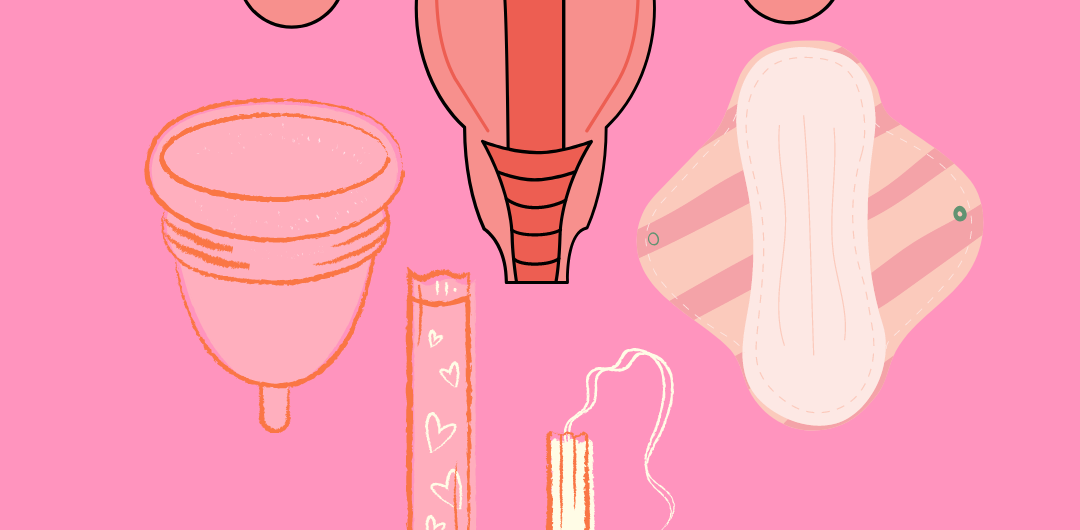Words By Hafeesha TB
Like any other health practices, menstrual hygiene management is also important for women to be healthy. There are many factors that prevent women’s access to good menstrual practices. In a country like India, lack of access to water, sanitation, good absorbents, toilets as well as social norms and taboos, prevent women from achieving adequate menstrual hygiene.
According to a 2014 UNICEF report, women and girls in India are significantly uneducated about menstrual hygiene practices. The report found that in Tamil Nadu, 79% of women and girls were unaware of menstrual hygiene practices , in Uttar Pradesh this percentage was found to be 66% and in Rajasthan and West Bengal it was 51%. In some rural areas within India, women use ash, dried dung, dried leaves and as adsorbents whilst on their period, as they don’t have access to napkins, clean clothes and enough toilets.
As well as issues, socio-cultural norms and practices also restrict the accessibility to menstrual hygiene. The notion of impurity and untouchability forces women to stay separate from others whilst they menstruate, meaning they have to eat and reside separately to others, and sometimes they are not even allowed to use the common toilet. Such taboos even resulted in the tragic death of a 14-year-old girl from Tamil Nadu in 2018, who died in a cyclone after being forced to sleep separately in a hut because she was menstruating. In another case, women from Vanjarwadi, a village in Maharashtra, India’s top sugar producing state, are forced to have their ovaries removed after having two or three children, in order to increase their ability to find work. Many contractors will give female workers an advance (which is later recovered from their wages) so they can undergo the hysterectomy, meaning the women are able to work non-stop, without the hindrance of their menstrual cycle.
The case of Uttar Pradesh
When I was studying about the menstrual hygiene of the rural women of Uttar Pradesh, a state in North India, I found a similar scenario. During group discussions with the women, initially, they were reluctant to speak about the subject of periods, as they believe that it was an inappropriate topic to discuss in public. Some women were shy, some were angry, some even ran away from the discussion.
A napkin as a luxury
Like gender disparity, economic disparity among different classes of women is also a reason for poor menstrual hygiene. For the majority of the women in rural Uttar Pradesh, a napkin is a luxurious product. They believe that only educated wealthy women can use napkins as it is considered a affluent product meant only for ‘prestigious’ people.
Priorities
Menstrual hygiene is not on the priority list of both men and women in rural Uttar Pradesh. The saddest part is the normalisation of menstrual health issues as personal conditions rather than health conditions. For them, they have other priorities like buying food, paying rent, and educating children with their limited income. They say that they could buy 2 kg of rice instead of buying napkins or spending money on menstrual hygiene.
What do they prefer?
In such a situation, napkins and other adsorbents would never be in their preferences. They prefer using clothes to any other methods as they are able to reuse them. Some women use the same clothes for years. Many issues also come into play here, the women wash the used clothes with minimal water, and do not dry the clothes in the open due to the shame associated with menstruation. Such practices often ended up causing serious health issues, and led the majority of the older women to use ashes as an absorbent, as they didn’t have enough clothes.
Gender
When it comes to women’s health in Uttar Pradesh, it is not considered as important as men’s. For example, if a man has a fever and a woman has heavy bleeding, they would take the man to the hospital.. Like this, most period related health problems are simply considered as inconsequential, with husbands feeling ashamed of even talking about menstruation. Most of the women talk about menstrual-related problems with other women members in the family and not with their husbands because it is considered purely a women’s issue.
Income disparity between genders is another factor which leads to insufficient menstrual hygiene. The majority of the women who work in Uttar Pradesh get a lower wage than men for doing the same work. And the women who do not go to work are reluctant to ask their husbands for money, in the fear that they would scold them if they discovered that the money was used for menstrual hygiene purposes. This often results in silence behind any menstrual related issues.
Not enough toilets
Accessibility to water and sanitation are key factors of menstrual hygiene. A private place to change a cloth, enough water to wash it, proper disposal facilities, a place for drying it are essential for good menstrual hygiene. However, in Uttar Pradesh, almost 10 households use a single toilet, and they don’t have enough places where they are able to wash and dry the clothes used during menstruation. They dry such garments underneath other clothes instead, as they feel ashamed of neighbours seeing them.
Normalised taboos, and social practices
To compare with Hindu society, Muslim society doesn’t follow the strict norms like untouchability that force women to stay in a separate room without touching plates, beds, and family members. However, the women of Uttar Pradesh are not allowed to touch the Quran and do namaz whilst they are menstruating.
In the context of India, poor menstrual hygiene is a result of lack of awareness, existing taboos and stigmas, and limited access to sanitation and menstrual hygiene products. There are hundreds of women in India who die every year due to menstrual health problems propagated by destructive taboos and insufficient accessibility to proper sanitation and hygiene products.





